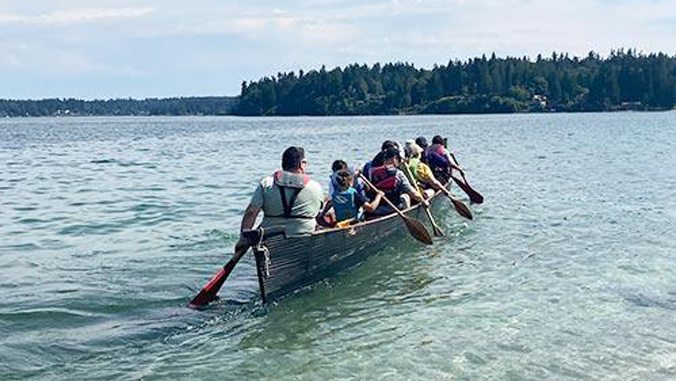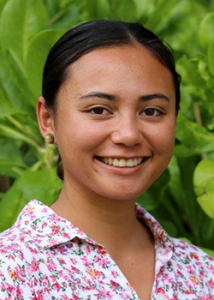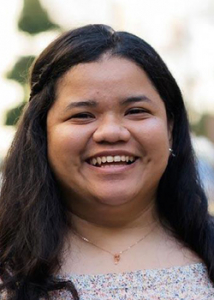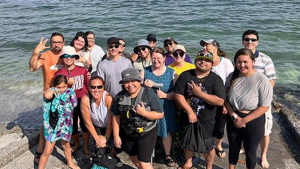
A transformative experience. That’s how PhD students at the University of Hawaiʻi at Mānoa’s College of Social Sciences (CSS) described their week at an institute on global indigeneities in Seattle, Washington.
Among the CSS attendees were Kammie Tavares from Waiʻanae, Oʻahu, and Randizia Crisostomo from Barrigada, Guåhan (Guam)—whose stories reflect resilience, identity and the importance of finding community in academia.

At the institute, graduate students with interdisciplinary and decolonial research interests gained not only professional tools, but personal support. For Tavares and Crisostomo, the experience provided a sense of connection and purpose that extended beyond the classroom.
Tavares, a PhD student in urban and regional planning, has always been fascinated by the relationship between people and places. Starting her academic path studying the geology of sandy beaches, she eventually realized her true interest lay in exploring the human aspect of these spaces.
“I first studied geology, but I wanted to explore how people interact with these environments,” she shared.
Especially memorable was a day spent in the Suquamish Nation paddling canoes in the Salish Sea.
“It was representative of our journey navigating our PhDs as Indigenous peoples,” Tavares reflected.
That day allowed her to connect deeply with other Indigenous scholars on similar paths.
Healing through art and politics

Crisostomo, a PhD student in Indigenous politics in the Department of Political Science, drew inspiration at the institute from her CHamoru heritage and a commitment to healing through collective grief using art and storytelling. To her, Indigenous politics isn’t just academic; it is personal.
“It’s fueled by my everyday lived experiences, especially as a CHamoru woman deeply connected to the political structures that shape, influence and interest with Micronesia and the broader Oceania region as a whole,” she explained.
Crisostomo was also deeply affected by paddling on the Salish Sea, and was nervous about the experience until she met an elder who reframed her thinking.
“I was told to be fully present in the relationship with the water,” she said. “The elder said as long as you paddle, the canoe will hold you. As long as you keep moving, you’ll stay afloat.”

In addition to Tavares and Crisostomo, two other CSS Indigenous politics PhD students—Ciera ʻIhilani Lasconia and Sara Maaria Saastamoinen—attended the institute.
UH Mānoa’s participation in the Summer Institute on Global Indigeneities (SIGI) is coordinated through Hui ʻĀina Pilipili, the Native Hawaiian initiative in the College of Social Sciences.
Applications for SIGI 2025 will open soon. For more information, contact Kamakana Aquino, CSS Native Hawaiian coordinator, at (808) 956-2581 or cssnhi@hawaii.edu.

